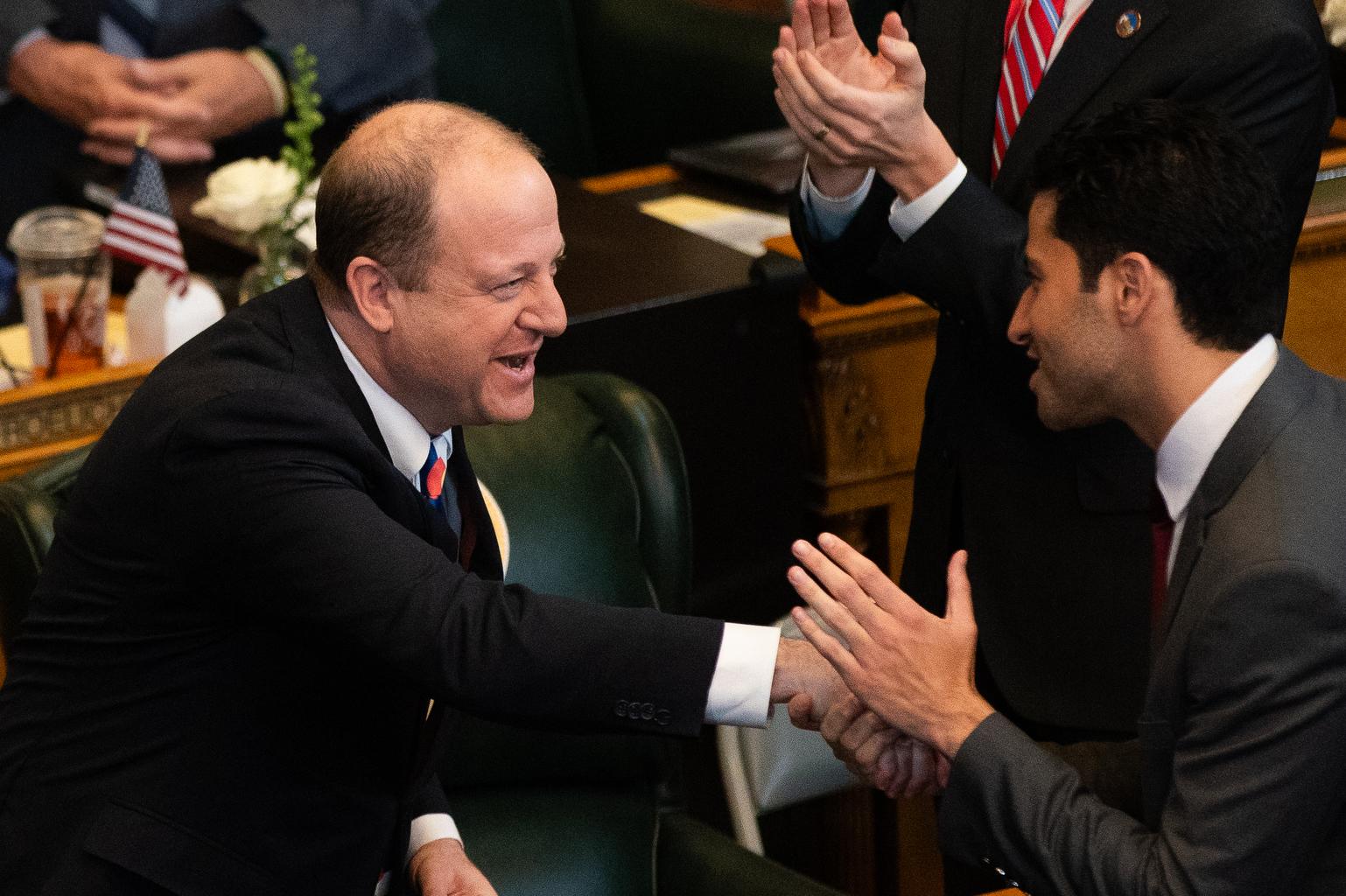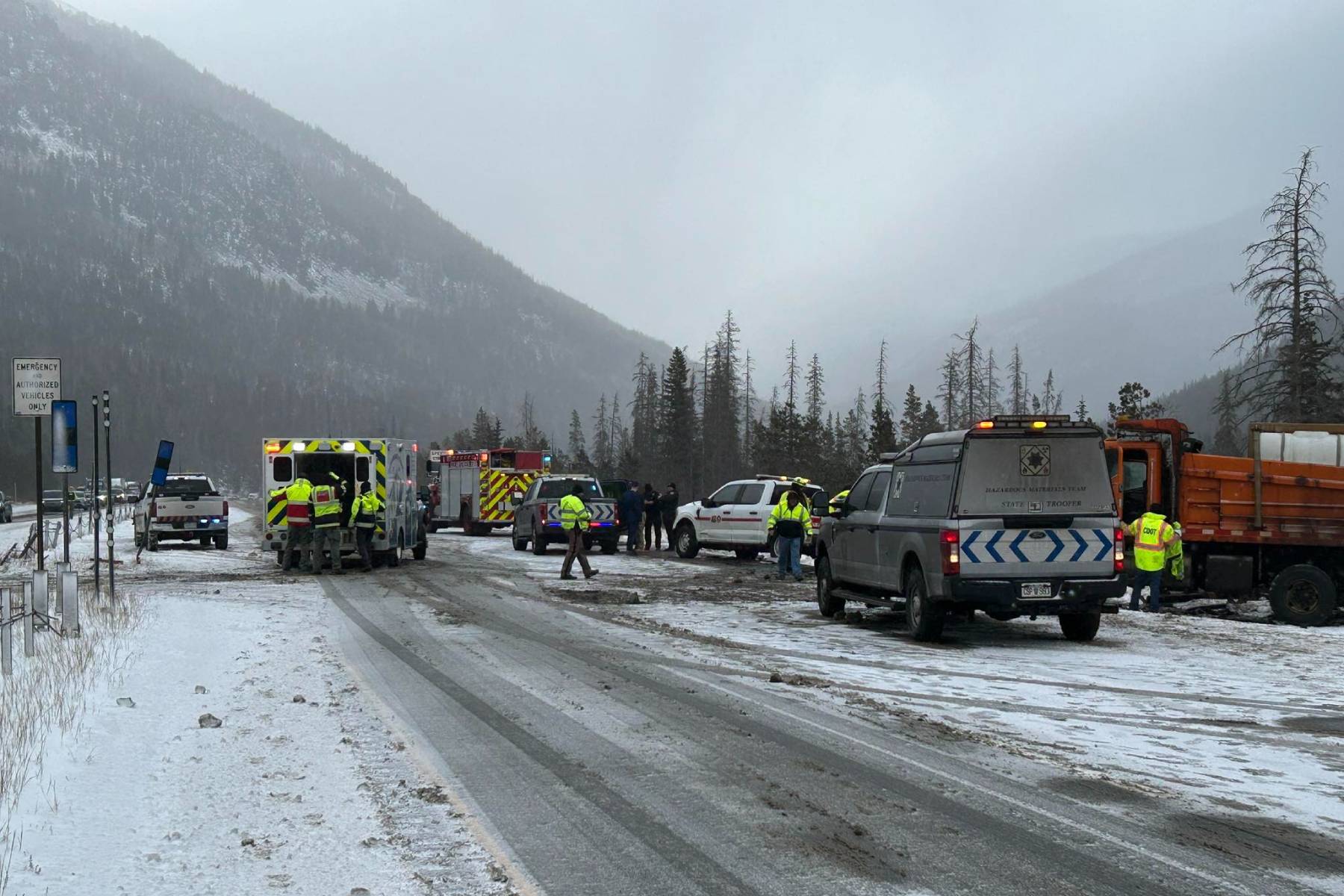
Colorado is taking another major step away from the federal government when it comes to public health. The governor announced Wednesday that the state is forming a new alliance with more than a dozen other states led by Democratic governors.
Gov. Jared Polis said Colorado is a founding member in the Governors Public Health Alliance, the GPHA, described as a non-partisan coalition of governors working together to do things like share data, best practices for things like threats and emergency preparedness and coordinate public health policy across state lines.
Earlier this year, Colorado passed a law along party lines allowing it to now follow the guidance on vaccines of national medical groups, in addition to a federal vaccine advisory committee.
“With all the uncertainty in Washington, including both the shutdown as well as the major cuts to CDC (the Centers for Disease Control and Prevention), states really need to step into the void,” Polis told CPR. “And rather than doing it all ourselves, Colorado can benefit from working with other states, more than a third of the country, on basic public health.”
The alliance will be “a coordinating hub” for governors and their public health officials and a “unified, cross-state liaison with the global health community,” according to a statement from the governor’s office.
Polis said the alliance is not a rebuke of the health-related decisions made by the Trump administration.
“It's about capacity,” he said, noting agencies are closed due to the shutdown, many have been gutted, and the United States has withdrawn from the World Health Organization.
Polis said that has pushed responsibility for public health to the states and the governors.
“There's a lot of benefit in working together because otherwise Colorado has to do it all ourselves,” he said.
Jake Williams, CEO of health advocacy group Healthier Colorado, applauded the move.
“I feel safer as a Coloradan as a result of this action. Coloradans need accurate health information and access to health care, and this alliance is going to help us get it,” he said.
RFK’s tenure
The move comes 10 months after Robert F. Kennedy Jr. was sworn in as secretary leading U.S. health agencies. During his chaotic tenure, he upended parts of America's health and science foundation and shared debunked conspiracy theories. Former CDC officials have called him out for endangering public health.
He defended his leadership as being in the best interest of the American people in a recent contentious Senate hearing.
“They deserve the truth, and that's what we're gonna give them for the first time in the history of that agency,” Kennedy said.
Multi-state pact
Other members of the alliance include California, Connecticut, Delaware, Hawai‘i, Illinois, Maryland, Massachusetts, New Jersey, New York, North Carolina, Oregon, Rhode Island, Washington, and Guam. All are led by Democrats.
The governor’s office and the Colorado Department of Public Health and Environment will share lessons about efforts to lower health costs, improve behavioral-health access, and expand preventive-care initiatives, according to the statement from Polis.
Polis said the group is set up as a donor supported nonprofit.
Vaccines are a key point in the emerging divide. Kennedy fired all the members of a federal advisory committee, replacing them with a group that's aligned with his vaccine skepticism.
The new alliance will work on technical and regulatory issues like vaccine policy.
“I think this is the first priority to see if they can collaborate well together, to distribute vaccines, get information out,” said Cathy Bradley, Dean of the Colorado School of Public Health. “These states do not want to see a bad winter, so the timing is not an accident.”
Positive response locally
Others also supported the governor’s decision to form and join the alliance.
“This makes sense. I can certainly see the need for sharing of data, best practices, interventions as situations arrive,” said Dr. Jon Samet, who helped lead Colorado's response to the COVID-19 pandemic.
“While the need for such an interstate organization is not ideal, its founding should be comforting to clinicians, public health workers, and researchers alike here in Colorado,” said Dr. Tamaan K. Osbourne-Roberts, a family physician, and former president of the Colorado Medical Society, who works with a diverse population in Aurora.
“As the federal government continues to cut jobs and funding from what traditionally has been the ‘crown jewel’ of public health systems worldwide, states will need to step in, to continue operations and to restore public confidence in public health at a time when both are being undermined,” he said. “I’m proud to see that Colorado is a chartering member in that effort.”
HHS, Republicans fire back
U.S. Department of Health and Human Services spokesman Andrew Nixon accused Democratic governors of “eroding public trust” with things like school closures and mask mandates. In an emailed comment, he said the Trump administration and Secretary Kennedy are rebuilding that trust by “grounding every policy in rigorous evidence and Gold Standard Science – not the failed politics of the pandemic."
Of the Republican members of the state’s Congressional delegation, Third District Rep. Jeff Hurd declined to comment; other offices did not respond.
“If the governor truly cares about health care, he should start by fixing the crisis he helped create,” said state Rep. Jarvis Caldwell of Monument, the Colorado House minority leader. “There have been over 500 regulations placed just on hospitals in the last eight years. This has driven up costs and forced rural hospitals to close.”
“Instead of joining yet another alliance made up entirely of Democrat-led states, the governor should focus on keeping hospitals open, reducing red tape, and restoring access to care for Coloradans,” Caldwell said in an emailed statement. “Real leadership means solving real problems, not signing onto political coalitions that do nothing for patients.”
Alliance backers
The CDC director under former President Joe Biden, Dr. Mandy Cohen, is part of a bipartisan group of advisers to the new alliance.
"The CDC did provide an important backstop for expertise and support," Cohen told NPR. "And I think now with some of that gone, it's important for states to make sure that they are sharing best practices, and that they are coordinating, because the problems have not gone away. The health threats have not gone away." GovAct, a nonprofit, nonpartisan donor-funded initiative, is backing the alliance. That organization also supports efforts to protect democracy and another often contentious issue, reproductive freedom.








